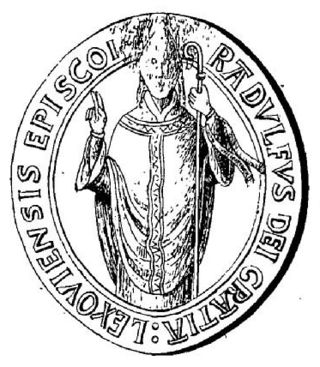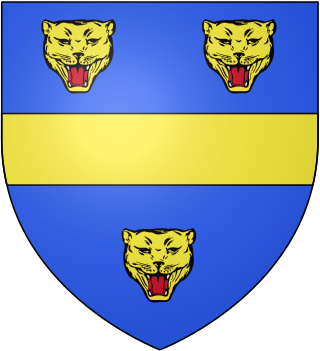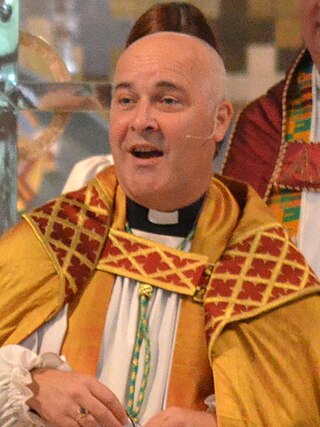Related Research Articles

Thomas Beaufort, Duke of Exeter was an English military commander during the Hundred Years' War, and briefly Chancellor of England. He was the third of the four children born to John of Gaunt, Duke of Lancaster, and his mistress Katherine Swynford. To overcome their problematic parentage, his parents were married in 1396, and he and his siblings were legitimated in 1390 and again in 1397. He married the daughter of Sir Thomas Neville of Hornby, Margaret Neville, who bore him one son, Henry Beaufort. However, the child died young.
Maurice was the third Lord Chancellor and Lord Keeper of England, as well as Bishop of London.
Waldric was the eighth Lord Chancellor and Lord Keeper of England, from 1103 to 1107. He was also Bishop of Laon from 1106 to 1112. He had been a royal chaplain as early as 3 September 1101.
William FitzGilbert was the fifteenth Lord Chancellor of England, from 1141 to 1142, serving the Empress Matilda.

Ralph de Warneville was the twentieth Lord Chancellor of England as well as later Bishop of Lisieux in Normandy.
Richard le Gras was Lord Keeper of England and Abbot of Evesham in the 13th century.
Sir John Lexington was a baron and royal official in 13th century England. He has been described as having been Lord Chancellor, but other scholars believe he merely held the royal seals while the office was vacant or the chancellor was abroad. He served two terms, once from 1247 to 1248, and again from 1249 to 1250.

Michael de la Pole, 1st Earl of Suffolk, 1st Baron de la Pole, of Wingfield Castle in Suffolk, was an English financier and Lord Chancellor of England. His contemporary Froissart portrays de la Pole as a devious and ineffectual counsellor who dissuaded Richard II of Englandfrom pursuing a certain victory against French and Scottish forces in Cumberland and fomented undue suspicion of that king's uncle John of Gaunt, 1st Duke of Lancaster.

John de Ufford was chancellor and head of the royal administration to Edward III as well as being appointed to the Archbishopric of Canterbury.

The Archbishop of York is a senior bishop in the Church of England, second only to the Archbishop of Canterbury. The archbishop is the diocesan bishop of the Diocese of York and the metropolitan bishop of the province of York, which covers the northern regions of England as well as the Isle of Man.
Sir Robert Parning was an English lawyer and administrator.

Sir John Knyvet was an English lawyer and administrator. He was Chief Justice of the King's Bench from 1365 to 1372, and Lord Chancellor of England from 1372 to 1377.
Louis of Luxembourg;. Bishop of Therouanne 1415–1436, Archbishop of Rouen, 1436, Bishop of Ely 1437, Cardinal.
John Gilbert was a medieval Bishop of Bangor, Bishop of Hereford and Bishop of St. David's.
Robert de Sigello was a medieval Bishop of London and Lord Chancellor of England.
Ralph Baldock was a medieval Bishop of London.
Robert Braybrooke (1336/7-1404) was a medieval cleric and King's Secretary. He was Dean of Salisbury and Bishop of London.
William Hamilton was deputy chancellor of England from 1286 to 1289, then Lord Chancellor from 1305 to his death on 20 April 1307. He was also Dean of York.
Guy Mone (Mohun) was an English royal administrator and bishop.
References
- Powicke, F. Maurice and E. B. Fryde Handbook of British Chronology 2nd. ed. London:Royal Historical Society 1961